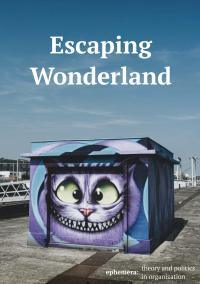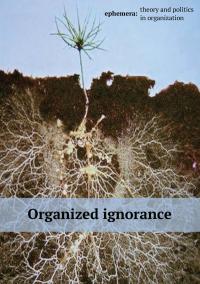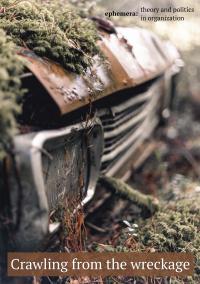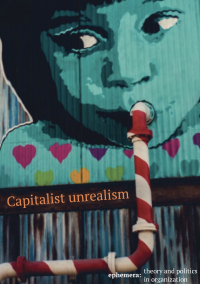Ephemera events archive
Datafied Organisation – between big promises and mundane fixes. Perspectives from critical data and algorithm studies
Critical data and algorithm studies has become an important antidote to the overblown promises around data and algorithms. This emerging field seeks to explore the relationships between the social and the technical in more nuanced ways than the dominant narratives shaped by the digital economy, whose business is based on selling technology that is supposedly always new, smart, more convenient and innovative.
Materialities and socialities of postcapitalism
Materialities and socialities of postcapitalism
Time and place: Tzoumerka, Greece, 21-22 September 2023
Organizers: Chris Giotitsas, Emilie Hesselbo and Lena Olaison
Games, incorporated
Conference organizers: Nick Butler, Lena Olaison, Bent Meier Sørensen and Sverre Spoelstra
Organizing for apocalypse
Organizers: Sine Nørholm Just, Sara Dahlman, Erik Mygind du Plessis & Emil Husted
Activist organizing and organizing activism: A post-pandemic world in the making
Organizers: Yousra Rahmouni Elidrissi, Ozan Nadir Alakavuklar, Ekaterina Chertkovskaya and Christos Giotitsas
Standby. On sociomaterial modes of organizing @EASST 4S 2020
This session is part of the ephemera special issue on Standby as Mode of Organizing
Standby. On sociomaterial modes of organizing
ephemera’s response to the coronavirus crisis
Throughout its 20 years’ existence, ephemera’s purpose as a journal has been to critically engage with the theory and politics of organization. In the face of the current re-organization of public and private life on an unprecedented scale, ephemera’s editorial collective has decided to slow down the processes of running a journal. This means that the publication of issue 20.2 (May 2020) will be suspended and future issues will be postponed by 3 months.
Materialities and socialities of postcapitalism: Commons, peer to peer sharing and solidarity (POSTPONED)
Organizers: Chris Giotitsas, Lena Olaison, Ozan Nadir Alakavuklar and Karolina Mikołajewska-Zając
Crawling from the wreckage: Does critique have a future in the business school?
Survival itself has something nonsensical about it today, like dreams in which, having experienced the end of the world, one afterwards crawls from the basement.
T.W. Adorno, Minimal Moralia.
Critique is always a critique of some instituted practice, discourse, episteme, institution, and it loses its character the moment in which it is abstracted from its operation and made to stand alone as a purely generalizable practice.
Judith Butler, What is Critique? An Essay on Foucault’s Virtue.
Touched by the ghost
A video from this event is now available here.
Information
Join us, if you dare, at the Royal Cast Collection.
No need for complicated seances to evoke the ghost.
Stay still. Listen. Breathe in.
The ghost will find you.
Post/social/isms
Organizers: Irina Cheresheva, Chris Giotitsas, Márton Rácz and Konstantin Stoborod
Beyond measure
Measurement is a central task of capitalist organization. From the days of the industrial factory, when labour first came to be measured in hours, through to the time-motion studies under Taylorist regimes, measurement has involved the optimization of surplus value extraction from labour. During the 20th century, these techniques of measurement were complemented by more intrusive forms of quantification such as the use of psychological testing in the human relations school.
Speaking truth to power? Theorizing whistleblowing
This workshop explores the relation between whistleblowing and forms of organizational power, and with critique. With the shocking revelations of Snowden and Wikileaks, and news of Manning’s mistreatment in custody, whistleblowing is a ‘hot topic’ in news debates. Even so, public perceptions of whistleblowers are rife with ambivalence; for some they represent ‘traitorous violators’ of a code of fidelity to their organization, suspicious figures who reject their obligations of loyalty to the employer, and dangerous tellers of secrets.
The disjointedness of time: Ghostly matters in organization
This ephemera workshop aims to discuss how the study of ghosts and ghostly matters in organizations can contribute to an understanding of what organization and organizing is. It will explore the disorderly, the unexplainable, the uncanny qualities of organizational life and attends to all the different sorts of ‘absent-presences’ that haunt, disrupt, distort, trouble, and bother the smooth functioning of work life. Additionally, it aims to learn about fissures between shiny futures and inadequate pasts and entanglements of hopes and fears in organizational life.




